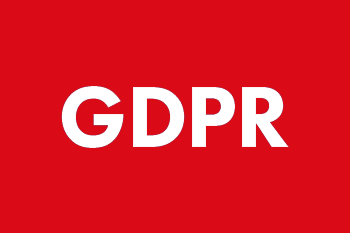What role do ethics play in content creation?
We know most newspapers, some TV programmes (news, factual programming etc.) and a few online publications have ethics policies. We also know that some industries are highly regulated (finance, pharma and so on) and sometimes that is driven by ethical considerations and applied to content programmes by companies in those sectors.
But in general what responsibilities fall upon those of us who supply organisations with words and images in exchange for cold hard cash?
As part of our recent research into how PRs interact with brand journalists we considered what is and isn’t acceptable as part of brand publishing.
In the UK, the National Union of Journalists (NUJ) has accepted PRs and other types of communications professionals as members for decades, alongside traditional journalists. Now the union is getting more members whose working life is split across roles or is purely focused on commercially-driven content. 
A spokeswoman told us: “A lot of work we do is on ethics and transparency. As long as everyone is playing fair and no one passes off [commercial work] as editorially-independent work, then we have no problems with that.”
Previously we highlighted how many journalists balance traditional editorial work in the media with commercial assignments – or are making the move full-time from journalism to content marketing. (This is how the industry has ended up talking about ‘brand journalists’.) But the situation can be trickier for those on a publication’s staff, working in roles as reporters or editors.
Unfortunately, plenty of journalists at traditional publications get told to create commercial copy alongside their usual reporting duties. This is distinct to those joining dedicated studio or lab arms (to take two of the common names) that most big publishers have now created to service clients.
Not only have these reluctant reporters in many cases never signed up for commercially-oriented work but they are then faced with a stark choice.
As one respondent to our survey put it: “They must choose between their job and their career.”
That’s because many feel they might be dismissed if they refuse to do commercial assignments. But if they do them, while in an editorial role, after their current employment others won’t want to hire a journalist with what could be seen as a compromised work history.
The NUJ spokeswoman said: “As far as our members being asked to put their names to commercial work, that ship has sailed. However, journalists can say ‘I can’t do this as it’ll breach my code of ethical conduct’. They can explain it will do both them and the publication reputational damage. That can be quite effective.”
The NUJ says it supports members who are reasonably taking issue with their employer wanting them to breach any of the codes they’ve signed up to. Often journalists have no over-arching ‘conscience clauses’ in their contracts, if they have a contract.
Having said that, unscrupulous publishers – unlike brand publishers for whom everything is commercial – when faced with resistance of the type just described, will often just go to the next staff writer along, hoping to find less resistance.
With that in mind, it perhaps isn’t surprising that our sample of PRs felt least comfortable with the term ‘native advertising’, a form of commercial content now being embraced by online publications. That’s in comparison to ‘content marketing’, ‘brand publication’ and the does-what-it-says-on-the-tin ‘corporate publishing’, which usually aren’t the focus of traditional media owners.
Whether faced with the trickiest of challenges in making brand content work at a traditional publication – through up-to-the-minute native advertising online or enduring forms such as print supplements – or creating content directly for brands, writers are finding support from a union that has never been more inclusive. (Some say it has no choice if it is to survive.)
“If you move out of traditional journalism, you can still remain an NUJ member,” the NUJ spokeswoman said. “But we’re talking about more nuanced environments, not the same old roles. It’s hard sometimes for a 20-year newsroom veteran to understand what’s expected of them.”
We initially contacted the NUJ to help answer our central question of whether traditional journalists and non-traditional journalists should be treated the same way, the reality being that the latter usually find it harder to get engagement and cooperation from PRs and press offices when creating content for a brand. Instead what we’ve found is a world where there remain few content creators doing pure editorial.
That means a number of things but our bottom line here is that it means there’s a place for more research. Meanwhile organisations such as the NUJ and others made up of editors and publishers must also champion editorial professionals and our audience, who consume and ultimately pay for everything we create, to ensure ethics aren’t compromised.
* photo credit: That Way via photopin (license)
–
Download our report ‘PR’s love-hate relationship with ‘brand journalists’ – and why it matters‘








